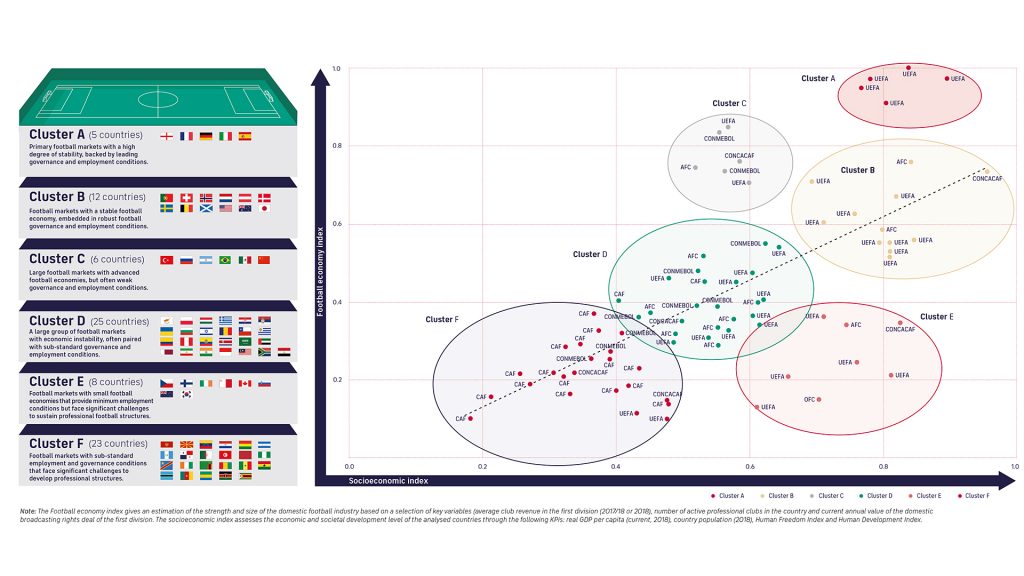FIFPRO is today launching the ‘Shaping Our Future’ report about men’s professional football that examines global revenue streams and the working conditions of players, with a view to achieving a more stable and robust game.
The report is based on data from a sample of 79 countries and combines the economic market insights of KPMG Football Benchmark with information on the employment conditions of professional footballers from FIFPRO. This groundbreaking format shows that those markets where there is a fair social contract – in which personal, civil, economic and workers’ rights are strong – can expect to sustain a more advanced football economy.
‘Shaping Our Future’ makes clear that domestic playing environments with sound governance, stakeholder representation, and collective agreements with player unions, lead not only to better employment conditions for footballers, but also increased market stability and sustained development.
Click to download ‘Shaping Our Future’ report
At a time of systemic changes and a global health crisis impacting competitions, the report puts the working lives of professional footballers at the heart of the debate about the development of the game, and uses an evidence-based approach to recommend the most important steps to take over the next decade. ‘Shaping Our Future’ places the 79 football markets into six clusters ranging from the world’s five most-advanced leagues (England, France, Germany, Italy and Spain) – “with a high degree of stability” – to 23 which face “significant challenges to development”.
Among the key findings:
- Less than one-third of countries have well-functioning domestic football with stable employment conditions
- A lack of basic employment standards in many countries creates unnecessary instability and hinders development
- Several markets with smaller revenue streams (for example, the Netherlands) provide more stability and better conditions for players than larger football economies (such as Turkey)
- More than 70 percent of the analysed 79 countries have average club budgets below €10 million
- 30 of 79 domestic football markets have annual broadcast income of less than $5 million
- There are a lack of national and international financial protection schemes to guarantee that players receive their salaries
‘Shaping Our Future’ makes a series of recommendations to address these and other issues, with a view to strengthening football’s foundations through an efficient, innovative and consolidated approach.

